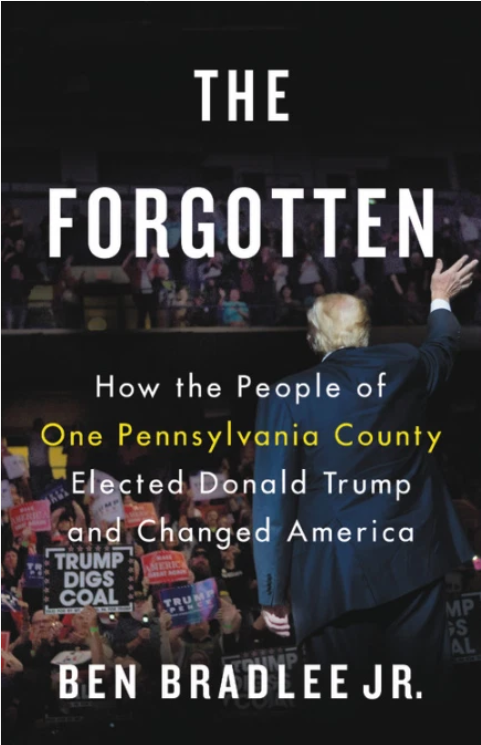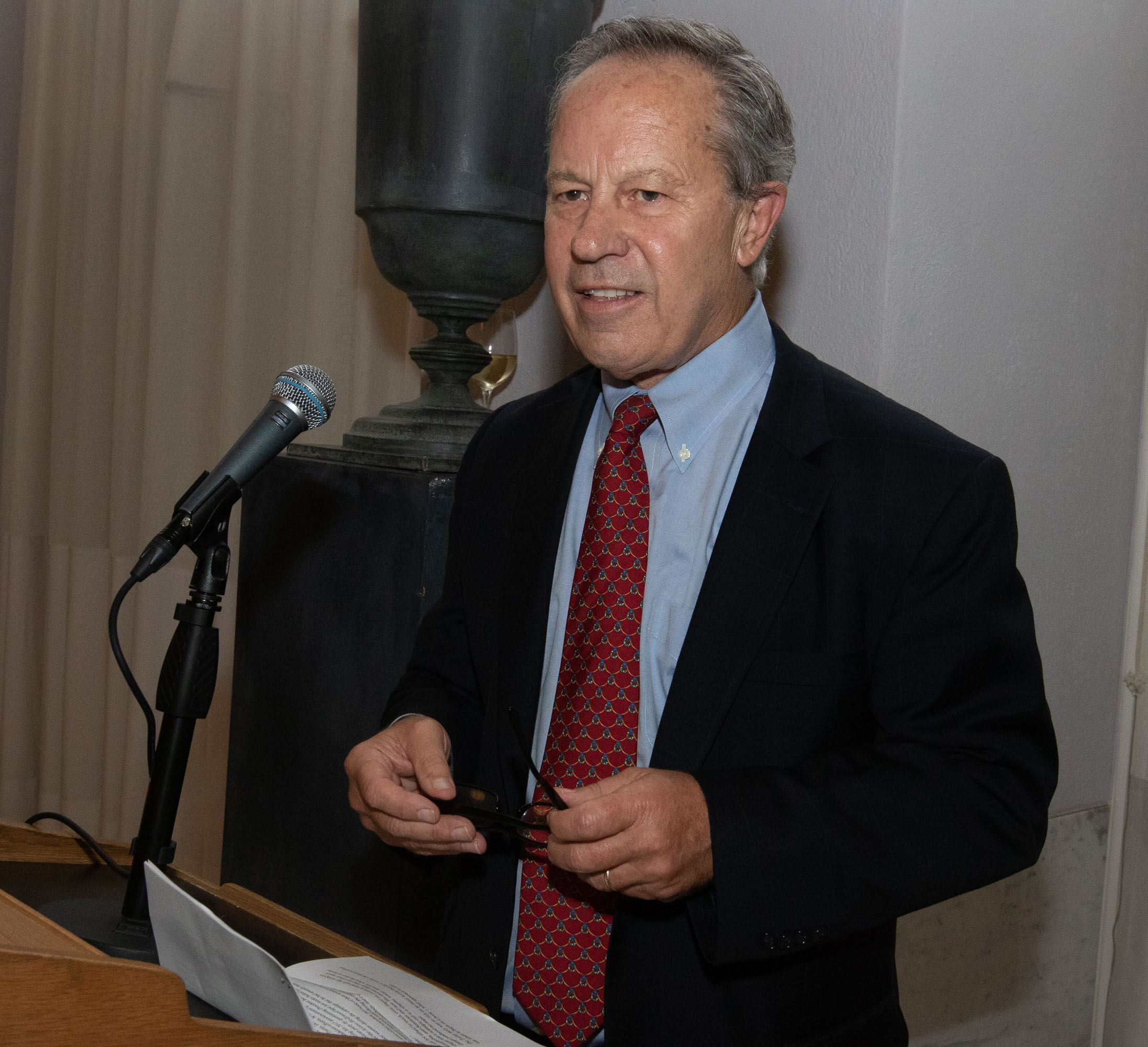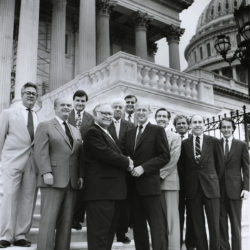By Ben Bradlee, Jr.
(November 6, 2020) As we sort out the election, I’ve been thinking a lot about the Trump constituency.
I’ve had a different experience with the Trump voter, immersing myself in their lives for a 2018 book I wrote, The Forgotten, which used a swing county in Northeast Pennsylvania that played a key role in Trump winning that state in 2016 to do a deep dive into the lives of people who elected the most unusual president we’ve ever had.
It was an eye-opening listening exercise that got me out of my mostly liberal, Boston bubble and exposed me to different political philosophies, different lives. It’s a big country out there.
These Trump voters share a contempt for Washington and the powers that be, who they feel have mostly abandoned them and left them marginalized by flat or falling wages, rapid demographic change, and a dominant liberal culture that mocks their faith and patriotism. They feel like everyone’s punching bag, and that their way of life is dying. They feel a loss of dignity. They feel like others are cutting in line, and that government is taking too much money from the employed and giving it to the able-bodied idle. They feel the country is in danger of being inundated by immigrants – legal and illegal.
For them, the new arrivals evoked not just a warm yearning for a whiter yesteryear, but an inclination – encouraged by Trump – to make clear that they preferred to be among their own race and social group. They feared that the places they had lived their whole lives were changing in ways they didn’t like or fully understand.
These fears had been simmering for a long time, often unspoken about. But Trump connected strongly to his aggrieved constituency, especially when he called them “the forgotten people.’’ That struck a chord, and then the floodgates seemed to open to him. Trump was able to activate and weaponize the resentments that they had over issues that were long-standing and hard-to-solve, if not intractable.
They liked that Trump was not afraid to touch, even linger on, political third rails like misogyny, xenophobia, and race – or to press his signature issue and race’s related hot button: immigration. His shrewd Make America Great Again slogan was a nostalgic paean to a simpler, whiter America when the pace of social change produced no angst and tribalism could thrive unabated.
But the people in his base were mostly unwilling, or even disinclined to think about, their own place of privilege in American society just by virtue of being white. They loved Trump’s rawness, his political incorrectness, his open use of the occasional four-letter word, and how the entire package gave them license to openly speak their mind the way Trump did, to say things they had long repressed in service of polite society.
And gradually, they became more invested in protecting their own higher rungs on life’s ladder.
Though it appears Joe Biden will now win the election, it was nonetheless shocking that Trump – an impeached and thoroughly corrupt President who treats the Justice Department as his private law firm and openly encourages the prosecution of his political enemies, who has a fondness for cruelty, chaos and deceit, who botched the Covid crisis and winked at white supremacists – could win some 48 percent of the vote.
The country has not yet reckoned with that.

In addition to The Forgotten, Ben Bradlee Jr. is the author of the critically acclaimed The Kid: The Immortal Life of Ted Williams (2013) among other books. Bradlee spent 25 years with The Boston Globe as a reporter and editor. As deputy managing editor, he oversaw the Globe‘s Pulitzer Prize-winning coverage of the sexual abuse scandal in the Catholic Church from July 2001 to August 2002. Bradlee lives with his wife outside Boston.




